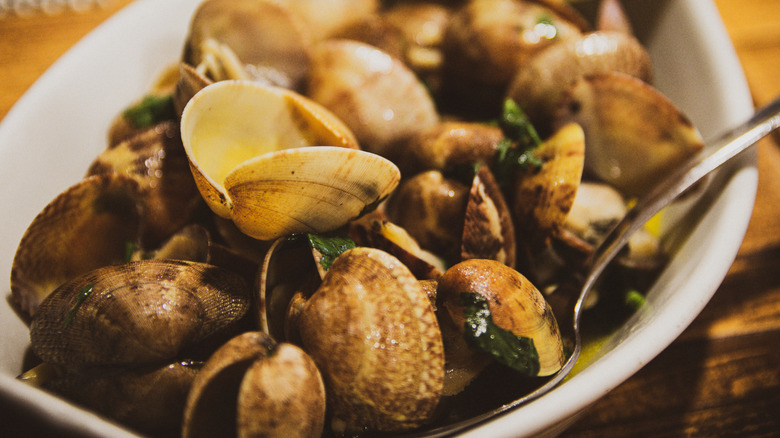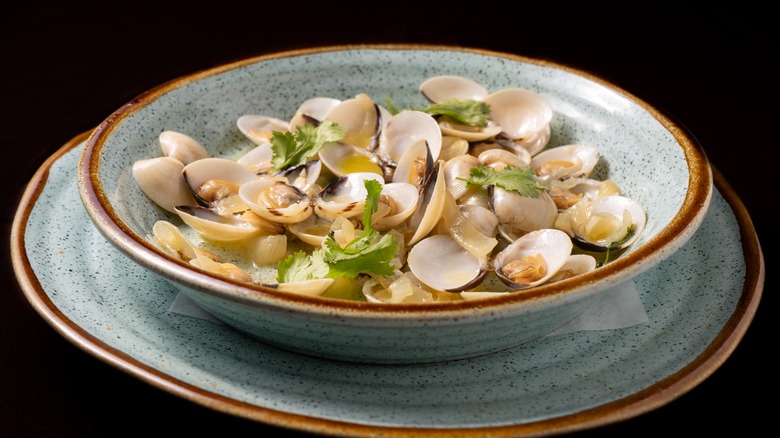The Portuguese Clam Dish With A Poetic Inspiration
While food is the sustenance we need to survive, most people's taste buds have certain likes and dislikes. For some, though, food is like poetry for the mouth. It's a particular blend of flavors, textures, and smells that cause the pleasure centers in the brain to melt into a moment of bliss.
Of course, it can be the other way around as well. The way a dish is described can tantalize the imagination enough to try a menu item or even crave a particular type of food. Take, for instance, Hemmingway's line from his memoir, "A Moveable Feast" where he says, "As I ate the oysters with their strong taste of the sea and their faint metallic taste that the cold white wine washed away, leaving only the sea taste and the succulent texture, and as I drank their cold liquid from each shell and washed it down with the crisp taste of the wine, I lost the empty feeling and began to be happy and to make plans." Even if you don't like oysters, this might be enough to inspire you to give them another go.
The Portuguese clam dish known as Bulhão Pato Clams has a long history of about 170 years and it was named after a well-known local poet at the time.
Bulhão Pato Clams and how they got their name
Some dishes are so simple, it makes you wonder why they're so incredibly good. That's how many describe this Portuguese dish. Clams are cooked with olive oil, garlic, and white wine. They're then seasoned with lemon juice, salt, pepper, and cilantro. The dish is also served with fresh bread for dipping in the sauce. While the inspiration for the name came from Raimundo António de Bulhão Pato, a 19th-century poet, the recipe itself is said to have come from chef, João da Mata who created the dish at the Lisbon Hotel Central de Lisboa in the 1850s. The chef was an admirer of Bulhão Pato's work. There are some who dispute that the chef created the dish as it doesn't appear in his cookbook published in 1879, "Arte de Cozinha."
The poet actually invented and published several recipes but the famous clam dish was not one of them. Bulhão Pato was a known food lover who was "prone to Byronic rhapsodizing, celebrated for both his ultra-romanticism and his appetite," and while it was his goal to be remembered for his poetry, it is this Portuguese clam dish that he is famous for to this day, despite never having created it. Today, the dish is recommended as a must-try local dish of Lisbon.

